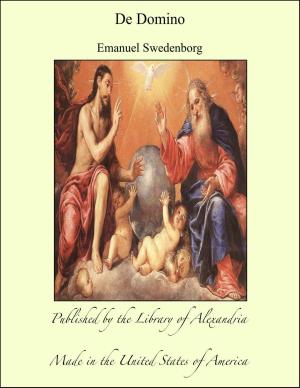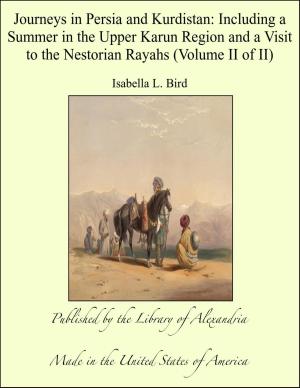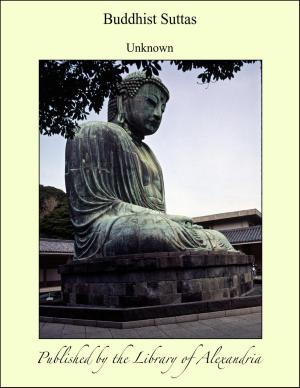| Author: | Anonymous | ISBN: | 9781465532886 |
| Publisher: | Library of Alexandria | Publication: | March 8, 2015 |
| Imprint: | Language: | English |
| Author: | Anonymous |
| ISBN: | 9781465532886 |
| Publisher: | Library of Alexandria |
| Publication: | March 8, 2015 |
| Imprint: | |
| Language: | English |
INTRODUCTION Only a small part of the original finds a place in the following pages; but I have in my translation—sometimes literal, now and again a summarised —endeavoured to give a selection of passages connected by the author’s central thought, and showing his line of argument and the aim and spirit of his work, instead of a mere collection of pithy sayings and isolated, beautiful, but disconnected reflections. This was the only way of doing justice to an author, some of whose reasonings are out of date, but the spirit of whose main contention is eternally valid; a teacher of virtue and duty, who did not attempt to inculcate this or that individual virtue, but aimed at the formation of character and conditions in which right conduct would be inevitable, so that details might well be left to take care of themselves. If the modern world owes its delight in physical beauty, and much of its sense of the true in Nature and in Art, to Greece; its ideal of goodness, and practically all the spiritual elements in our thought and feeling, our conception of holiness, and every moral characteristic of civilisation and of culture, have come to us from the Orient. For the form and system of Ethics we may be indebted to the few Hellenic thinkers whose sublime intellects raised them above the phenomenal world into a clear atmosphere of ideas, always suffused with the light of truth and justice; but all the permanent and vital contents of Ethics came, living and pulsating, with their vitalising possibilities, both into that atmosphere and into our life of to-day, with the glow of dawn from the East. Indeed, the two cardinal ideas essential to all present and future moral systems—the sanctity of human life as such, and the absolutely universal authority and validity of moral law and obligation—are entirely absent from even the writings of Plato, the greatest of the Greeks. These two are among the most definite colours that the prism of modern thought has enabled us to single out in our perception of the pure white light, from the sun of righteousness, that shone on Sinai. They are specially characteristic of the Hebrew moral teaching which the three great religions—Judaism, Christianity and Islamism—have spread throughout the world. In the world’s organism, it seems to be the special function of the Oriental peoples to secrete, or to absorb from what is, or may be, beyond and above the physical universe, all that man needs to nourish the life of his soul and to perfect his individuality; while it is the function of the Western civilised nations to show the Eastern peoples how the material resources and the forces of nature may be mastered, and the observed relations which we call nature’s laws may be applied to serve the purposes of material life, individual and communal. The Semitic religious, and the Aryan-Oriental mystic, intuitions, seem to be the chlorophyl that draws, from the sunlight of spiritual being, elements essential to the healthy growth of the human race; and if Western humanity is to be saved from becoming a dry and sapless log, it must perenially renew that foliage which brings it into contact with the ambient upper air, warmed by the glow of righteousness and love. It is to help in this process of renewing the spiritual and moral life of the West that the “Orient Press” is publishing the present series of selections
INTRODUCTION Only a small part of the original finds a place in the following pages; but I have in my translation—sometimes literal, now and again a summarised —endeavoured to give a selection of passages connected by the author’s central thought, and showing his line of argument and the aim and spirit of his work, instead of a mere collection of pithy sayings and isolated, beautiful, but disconnected reflections. This was the only way of doing justice to an author, some of whose reasonings are out of date, but the spirit of whose main contention is eternally valid; a teacher of virtue and duty, who did not attempt to inculcate this or that individual virtue, but aimed at the formation of character and conditions in which right conduct would be inevitable, so that details might well be left to take care of themselves. If the modern world owes its delight in physical beauty, and much of its sense of the true in Nature and in Art, to Greece; its ideal of goodness, and practically all the spiritual elements in our thought and feeling, our conception of holiness, and every moral characteristic of civilisation and of culture, have come to us from the Orient. For the form and system of Ethics we may be indebted to the few Hellenic thinkers whose sublime intellects raised them above the phenomenal world into a clear atmosphere of ideas, always suffused with the light of truth and justice; but all the permanent and vital contents of Ethics came, living and pulsating, with their vitalising possibilities, both into that atmosphere and into our life of to-day, with the glow of dawn from the East. Indeed, the two cardinal ideas essential to all present and future moral systems—the sanctity of human life as such, and the absolutely universal authority and validity of moral law and obligation—are entirely absent from even the writings of Plato, the greatest of the Greeks. These two are among the most definite colours that the prism of modern thought has enabled us to single out in our perception of the pure white light, from the sun of righteousness, that shone on Sinai. They are specially characteristic of the Hebrew moral teaching which the three great religions—Judaism, Christianity and Islamism—have spread throughout the world. In the world’s organism, it seems to be the special function of the Oriental peoples to secrete, or to absorb from what is, or may be, beyond and above the physical universe, all that man needs to nourish the life of his soul and to perfect his individuality; while it is the function of the Western civilised nations to show the Eastern peoples how the material resources and the forces of nature may be mastered, and the observed relations which we call nature’s laws may be applied to serve the purposes of material life, individual and communal. The Semitic religious, and the Aryan-Oriental mystic, intuitions, seem to be the chlorophyl that draws, from the sunlight of spiritual being, elements essential to the healthy growth of the human race; and if Western humanity is to be saved from becoming a dry and sapless log, it must perenially renew that foliage which brings it into contact with the ambient upper air, warmed by the glow of righteousness and love. It is to help in this process of renewing the spiritual and moral life of the West that the “Orient Press” is publishing the present series of selections















